How to rebuild a city with Karam Alkatlabe

Meet PhD student, Fanny Seizilles
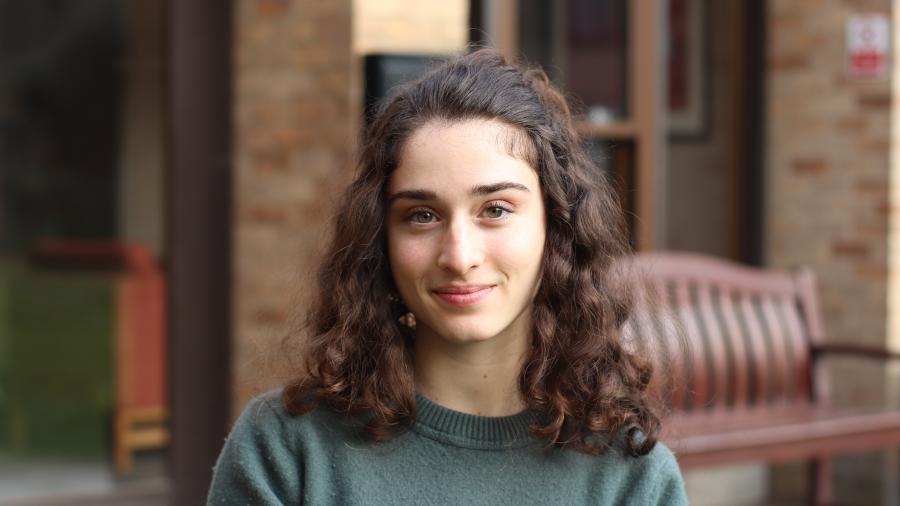
“The project combines everything I could hope for: mathematical challenges, interdisciplinarity, and a real-world purpose!”, reflects first-year Wolfson PhD student, Fanny Seizilles, on her impactful STEM PhD project.

Fanny Seizilles is a first-year PhD candidate who grew up in Paris. At secondary school, Fanny enjoyed a wide range of subjects. Undecided about her future career path, she opted for a subject that she felt would keep open the most doors - maths. “I gradually fell in love with the subject and how it could explain and model the world, and decided to specialise in probability and statistics,” Fanny explains.
Now, Fanny is an active member of the Wolfson community, having chosen to stay on at Wolfson after her Part III master’s degree. From welcoming new students on the WCSA registration desk earlier this year to captaining the Wolfson Women’s Boat Club, Fanny has useful advice for balancing the research and social aspects of a PhD.
Can you briefly summarise your PhD project in your own words?
I am interested in Inverse Problems, which are concerned with determining the causes of a phenomenon from experimental observations of its effects. My current project applies such methods to the Antarctic ice sheet, where – comparing model outputs to satellite observations – we can ascertain probability estimates of different parameters governing its dynamics.
Why do you think such a project is important at this moment in time?
There is a key incentive behind such work: with better parameters to take as input into models, we can attain more accurate predictions for how sea levels and the climate are changing, and thus communicate with governmental bodies to foster action.
Why did you decide to come to Cambridge for your PhD?
As part of the program of my engineering school in France, I had to spend a year abroad; Cambridge is a renowned centre of maths, so I came here to study the Part III masters. I quickly fell in love with the city and the stimulating intellectual environment, so when the opportunity to stay for a PhD came up, I decided to take it!
What made you decide to apply to Wolfson as your first choice College for your PhD?
When applying for the master's from France, I did not know anything about the college system and did an open application; when I arrived in Wolfson, however, I soon realised that I had a home. Being a master's student, I appreciated the fact that it is a mature college: everyone has an interesting story and variety of life experience before coming to Cambridge, and I found it really easy to connect with other people.
How would you describe the atmosphere within College? Do you have a favourite part of College?
Everybody is very friendly, and we have a very diverse and cosmopolitan community. I also really love the College grounds: the spaces (both common rooms and gardens) truly feel like they were designed to be enjoyed by students, and not just as pretty decor. The College feels very homely. When reapplying for a PhD, there was no question that Wolfson would be my first choice.
What extracurricular activities, or aspects of College life, are you involved in this year?
I am heavily involved with rowing, and I am this year’s Women’s captain for Wolfson College Boat Club. Rowing is a great opportunity to meet people, entertain my competitive side, and get the physical activity that I crave; the PhD student life would feel largely sedentary otherwise. It provides a nice frame to my days, and it is beautiful to be beneath a morning sunrise on the river – with ducks and swans as company!
Otherwise, what I love about Wolfson is that there are always events going on, organised by the Students’ association, WCSA: Howler comedy nights, Open Mics, crafts, ‘Tea and Cake’ events. There is no need to be part of any club, you can just keep an eye on your emails, Facebook page or general talk around College!
What provision is there at Wolfson and Cambridge for scientific exploration?
Mathematics of Information is very dynamic; our understanding is growing continuously, so it is a very exciting area of mathematics to be in! Moreover, it is one of the research areas most prone to interdisciplinarity: climate modellers, medical professionals, economists - many scientists need someone to make use of the increasing volume of data being collected, to improve our models and prediction capabilities.
One of the biggest benefits of Wolfson is that same interdisciplinarity: to meet people studying different topics from yours, and yet find plenty to talk about. I have had many enriching conversations with people - totally out of the blue - just by sitting next to them in the cafeteria!
Are you working in partnership with any organisations for your project?
I am part of the CMI cohort (Cambridge Mathematics of Information, funded by the CCIMI) and based in the Maths Department but am also working with people at the British Antarctic Survey and the Civil Engineering Department. I am lucky to be additionally supported by Wolfson for my studies: I received a scholarship from College for women in STEM, the Dr Hyun Wha Oh Kim scholarship, for which I am very grateful.
How does it feel to be a woman in STEM?
Outside of the academic side, being a woman in STEM (and particularly maths) can feel a little isolating. So being part of a college which doesn’t have a particular academic speciality, where I can meet people with diverse thinking, is great and extremely academically stimulating. On a more general note, never hesitate to ask and broaden your interests; the University is packed with a vast array of expertise, and people are always happy to share their research and discuss yours!
Do you have any tips for managing a PhD, or any advice for a prospective student who might want to do a maths PhD at Wolfson?
I try to structure my PhD as a job, keeping evenings and weekends free. A PhD can feel very busy and challenging, but make sure to take enough time to explore your other personal interests and everything the College – not to mention Cambridge - has to offer. Go and visit the zoology museum, take a walk in the botanical gardens, and watch a musical at the local theatre!
This article is part of the PhD Student Profile Series:
Law student, Anna Lukina, on studying a PhD at Wolfson - and investigating 'Evil law'
You can learn more about the funding available at Wolfson and how to apply to study for a PhD at Cambridge University as a Wolfson College student on our website.
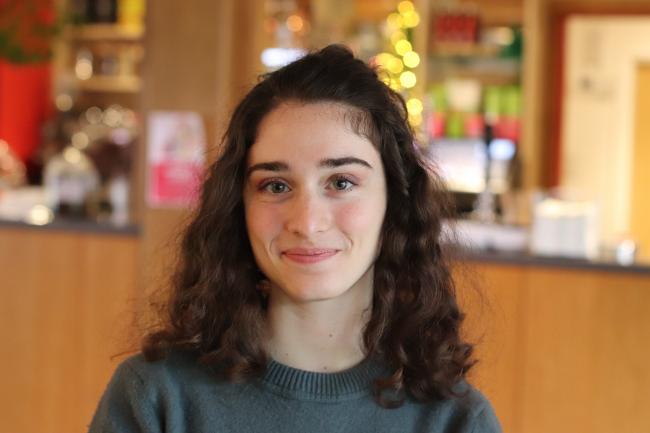
Fanny in the Wolfson clubroom
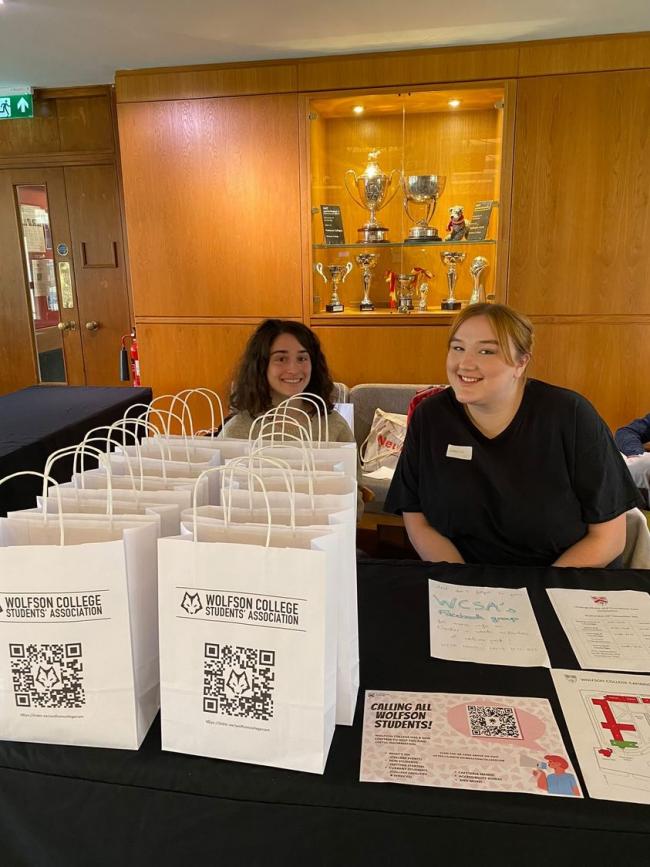
Fanny welcoming new students with WCSA
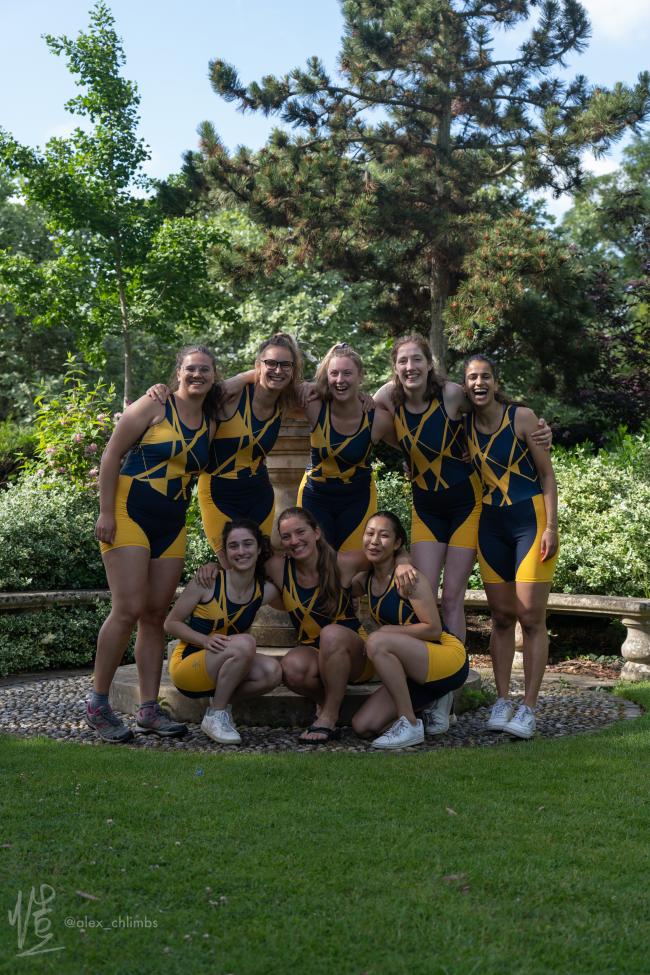
Fanny is the 22/3 women's captain for Wolfson Boat Club
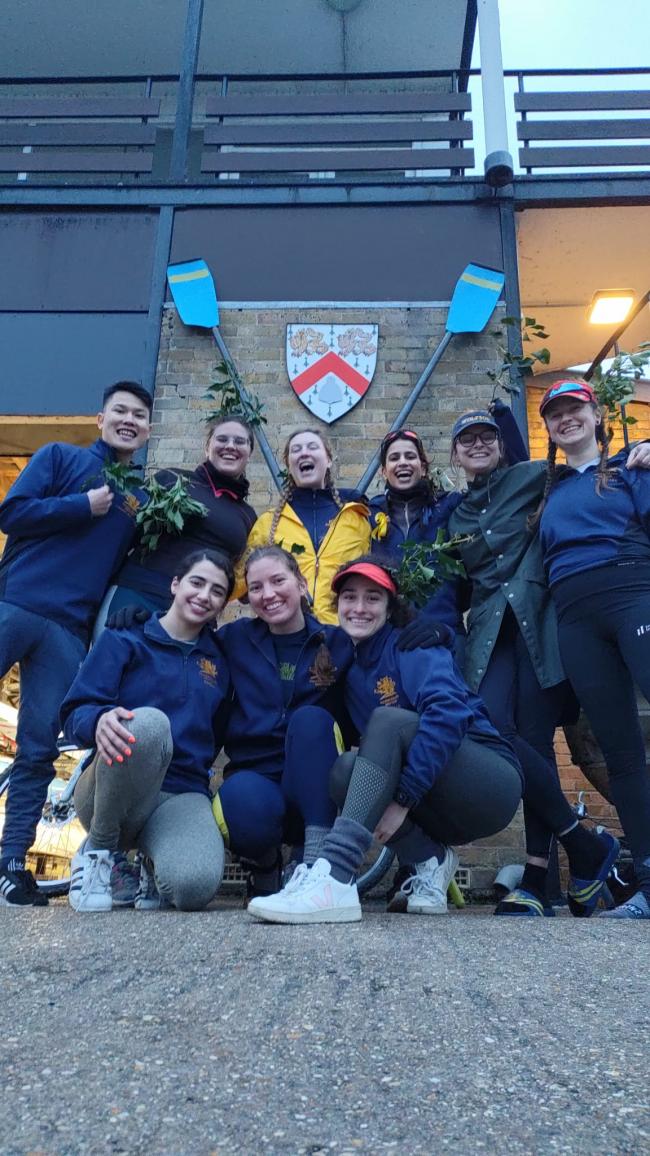
Fanny's boat post-race
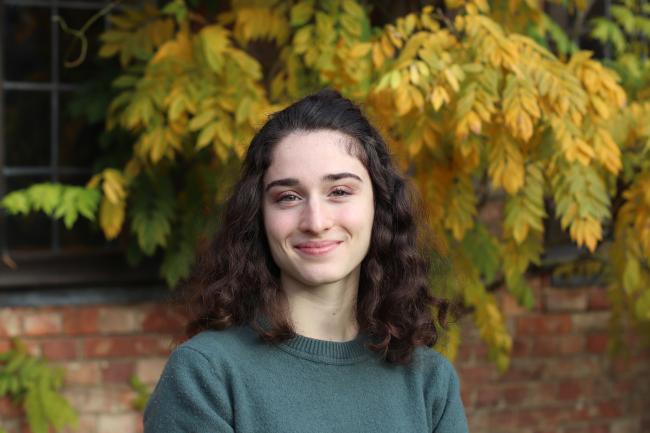
Fanny in the Wolfson gardens







